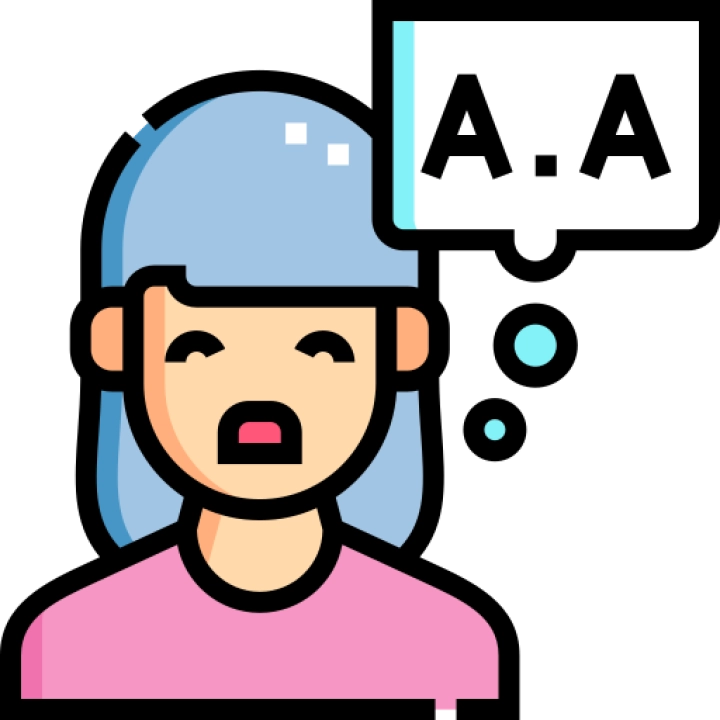Faculty: Health Sciences
The Speech and Language Therapy specialization focuses on the assessment, diagnosis, and treatment of speech, language, and swallowing disorders. Students develop skills in communication sciences, therapeutic interventions, and clinical practices. Graduates are prepared to work as speech-language pathologists in hospitals, clinics, schools, and private practices.
Learning Objectives:
- Understand the fundamentals of speech, language, and hearing sciences.
- Develop skills in assessing and diagnosing communication disorders.
- Learn techniques for planning and implementing therapeutic interventions.
- Explore principles of swallowing disorders and their management.
- Analyze and interpret clinical data and patient needs.
- Develop critical thinking, problem-solving, and clinical skills for effective speech and language therapy practice.
Main Curriculum:
- Introduction to Speech and Language Therapy
- Overview of key concepts, principles, and practices in speech and language therapy.
- Fundamentals of communication sciences, speech and language development, and disorders.
- Speech and Language Assessment
- Principles of speech and language assessment, including diagnostic tools, standardized tests, and clinical observations.
- Techniques for conducting comprehensive speech and language assessments.
- Therapeutic Interventions
- Principles of therapeutic interventions, including treatment planning, goal setting, and evidence-based practices.
- Techniques for implementing effective treatment strategies for various communication disorders.
- Phonetics and Phonology
- Principles of phonetics and phonology, including speech sounds, pronunciation, and phonological processes.
- Techniques for assessing and treating speech sound disorders.
- Language Development and Disorders
- Principles of language development and disorders, including syntax, semantics, pragmatics, and language delay.
- Techniques for assessing and treating language disorders in children and adults.
- Swallowing Disorders (Dysphagia)
- Principles of swallowing disorders, including assessment, diagnosis, and management.
- Techniques for assessing and treating dysphagia in various patient populations.
- Audiology for Speech-Language Pathologists
- Relevant principles of audiology for speech-language pathology, including hearing evaluation and rehabilitation.
- Techniques for collaborating with audiologists and managing communication disorders related to hearing.
- Clinical Practicum Training
- Hands-on experiences in speech and language therapy settings, including clinical practicum in hospitals, clinics, schools, or private practices.
- Applying acquired skills in practical speech and language therapy scenarios.
- Capstone Project in Speech and Language Therapy
- Comprehensive project to apply skills in speech and language assessment, therapeutic interventions, or swallowing disorders management.
- Presentation of a polished speech and language therapy project, case study, or research presentation.
Evaluation Methods:
- Speech and language assessment reports, therapeutic intervention plans, phonetics and phonology projects, language development studies, dysphagia management plans, audiology collaboration projects, clinical training reports, capstone projects, group projects, and presentations.
Recommended Textbooks:
- "Introduction to Communication Disorders" by Rhea Paul.
- "Language Disorders from Infancy through Adolescence" by Rhea Paul.
- "Children's Speech Sound Disorders" by Caroline Bowen.
- "Dysphagia: Clinical Management" by Joseph Murray and Merrill Nes.
- "Audiology for Speech-Language Pathologists" by various authors.
Prerequisites:
Basic knowledge of anatomy, physiology, linguistics, and an interest in communication sciences and disorders.
Program Duration:
Typically 4 years for a bachelor's degree, including coursework, clinical training, and capstone projects. For advanced practice, a master's degree in Speech-Language Pathology is often required, which usually takes an additional 2 years.
Certification:
Graduates may obtain a degree in speech and language therapy and pursue continued education or professional certifications, such as the Certificate of Clinical Competence in Speech-Language Pathology (CCC-SLP) offered by the American Speech-Language-Hearing Association (ASHA).
Target Audience:
Aspiring speech-language pathologists, communication disorder specialists, and healthcare professionals seeking to work in hospitals, clinics, schools, private practices, and various roles related to speech and language therapy.
This specialization equips students with clinical, diagnostic, and therapeutic skills necessary to excel in speech and language therapy, supporting careers in diverse health and educational settings.












